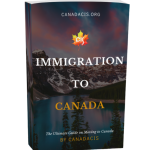Federal Skilled Trades Program Under Express Entry: Canada Immigrants Guide
Home » Blog » Work in Canada » Federal Skilled Trades Program Under Express Entry: Canada Immigrants Guide
That’s right!
When it comes to Canadian immigration, Express Entry opens doors to various opportunities, especially skilled workers. In this article, we’ll focus on one specific program called the Federal Skilled Trades Program. Let’s begin our journey and discover the opportunities that await through the FSTP!
Table of Contents
What is the Federal Skilled Trades Program (FSTP)?
The Federal Skilled Trades Program (FSTP) is an immigration pathway under Canada Express Entry designed specifically for skilled tradespersons who want to become permanent residents. The FSTP targets individuals with experience in eligible skilled trades occupations that are in demand in the Canadian labor market.
FSTP Eligibility: Who Can Join the Federal Skilled Trades Program
FSTP Requirement #1: Language Ability
To meet the language requirements for FSTP Express Entry, you must achieve a minimum Canadian Language Benchmark (CLB) speaking, listening, reading and writing for either English or French languages. Approved language tests are available for each language skill. Make sure to enter your test results accurately in your Express Entry profile.
| Official Language | Language Abilities | Minimum Level |
|---|---|---|
| English Language | Speaking and listening | CLB 5 |
| English Language | Reading and writing | CLB 4 |
| French Language | Speaking and listening | NCLC 5 |
| French Language | Reading and writing | NCLC 4 |
Keep in mind that your language test results are valid for two years from the date of the test. It’s important that they remain valid on the day you submit your application for permanent residence.
FSTP Requirement #2: Skilled Work Experience
To be eligible for the Federal Skilled Trades Program (FSTP), you need to have relevant skilled work experience. The program categorizes skilled trades under specific groups in the National Occupational Classification (NOC). Here are the NOC groups considered for the FSTP:
| NOC Group | Descriptions |
|---|---|
| Major Group 72 | Technical trades and transportation officers and controllers (excluding Sub-Major Group 726, transportation officers and controllers) |
| Major Group 73 | General trades |
| Major Group 82 | Supervisors in natural resources, agriculture and related production |
| Major Group 83 | Occupations in natural resources and related production |
| Major Group 92 | Processing, manufacturing and utilities supervisors, and utilities operators and controllers |
| Major Group 93 | Central control and process operators and aircraft assembly assemblers and inspectors (excluding Sub-Major Group 932, aircraft assemblers and aircraft assembly inspectors) |
| Minor Group 6320 | Cooks, butchers and bakers |
| Unit Group 62200 | Chefs |
You must show that you performed the duties set out in the lead statement of the occupational description in the NOC. This includes all the essential duties and most of the main duties listed.
FSTP Requirement #3: Education
One of the unique aspects of the Federal Skilled Trades Program (FSTP) is that there is no specific education requirement. However, having education can still be beneficial for improving your rank in the Express Entry pool. Here’s how education factors into the program:
Canadian Education: If you have completed education in Canada, you can earn points for a certificate, diploma, or degree from either a Canadian secondary institution (high school) or a post-secondary institution.
Foreign Education: For individuals with foreign education, it is still possible to earn points through the FSTP. To do so, you need to obtain an Educational Credential Assessment (ECA) report for immigration purposes from a designated organization. Though not required, by obtaining a favorable ECA report for FSTP, you can increase your ranking in the Express Entry pool.
FSTP Requirement #4: Valid Job Offer
Applicants must meet certain requirements regarding a valid job offer. Here are the two options for satisfying this requirement:
Applicants must have a valid job offer for full-time employment in a skilled trade for a minimum duration of 1 year. The job offer must come from a Canadian employer.
Alternatively, applicants can provide a certificate of qualification in their skilled trade. This certificate must be issued by a Canadian provincial, territorial, or federal authority.
FSTP Requirement #5: Proof of Funds
Applicants must demonstrate that they have sufficient funds to support themselves and their family upon arrival in Canada, unless they meet specific exemptions:
Exemptions! Legally Working in Canada
If you are currently authorized to work in Canada and have a valid job offer from a Canadian employer, you do not need to show proof of funds.
The required amount of funds is determined based on the size of your family, which includes yourself, your spouse or common-law partner, your dependent children, dependent children of your spouse or common-law partner. It is necessary to include your spouse or common-law partner and dependent children, even if they are Canadian citizens or permanent residents or not accompanying you to Canada.
The following table presents the minimum funds required for immigration to Canada as of April 25, 2023. If you have more money, it is advisable to provide the full amount in your profile or application:
| Number of Family Members | Funds Required (in Canadian dollars) |
|---|---|
| 1 | $13,757 |
| 2 | $17,127 |
| 3 | $21,055 |
| 4 | $25,564 |
| 5 | $28,994 |
| 6 | $32,700 |
| 7 | $36,407 |
| For each additional family member beyond 7 | C$3,706 |
Federal Program Defined: How the Federal Skilled Trades Program (FSTP) and Provincial Nominee Programs (PNPs) Overlap
What Does the Federal Program Mean?
In Canadian immigration, a federal program is a program or policy implemented by the national government. These programs cover different areas like immigration, healthcare, education, social services, and economic development. They apply to the entire country and are managed by federal government agencies. For example, the Federal Skilled Worker Program (FSWP) and Federal Skilled Trades Program (FSTP) follow consistent rules and guidelines across all provinces and territories in Canada. This ensures that the same standards and services are provided nationwide.
Exceptions: FSTP vs Provincial Nominee Programs (PNPs)
While the FSTP is a federal program, some provinces also have specific streams or categories within their PNPs that target skilled tradespersons. These streams may have additional requirements or preferences for individuals with trades experience.
In some cases, individuals who qualify for the FSTP may also be eligible for a nomination from a specific province under its PNP. This provincial nomination can provide additional points and benefits in the Express Entry system, which can increase the chances of receiving an invitation to apply for permanent residency.
Benefits in Applying for Federal Skilled Trades Program
The Federal Skilled Trades Program (FSTP) offers several advantages for individuals seeking immigration opportunities to Canada. If you are skilled in a designated trade, the FSTP could be the pathway you’ve been looking for. Here are some key benefits of applying to the program:
Unlike some other immigration programs, the FSTP has simplified eligibility criteria, making it more accessible for skilled tradespeople. The program focuses on specific trades that are in demand in Canada, allowing individuals with the right skill set to apply.
One significant advantage of the FSTP is that it does not require an Educational Credential Assessment (ECA). This means that skilled tradespeople can apply based on their work experience and trade qualifications without the need to go through the additional step of getting their credentials assessed.
The FSTP prioritizes the processing of applications, leading to potentially faster results compared to other immigration streams. This priority processing is beneficial for skilled tradespeople who are eager to begin their new life in Canada and start contributing to the workforce quickly.
Successful applicants through the FSTP can obtain permanent residency in Canada. This offers long-term stability and numerous opportunities for personal and professional growth. Permanent residents enjoy access to various social benefits and can eventually apply for Canadian citizenship if they meet the eligibility requirements.
Canada has a strong demand for skilled tradespeople across different sectors, including construction, manufacturing, transportation, and more. By applying through the FSTP, individuals with the required skills and experience have a higher chance of finding employment opportunities in their respective trades.
Skilled tradespeople in Canada often enjoy competitive wages and favorable work conditions. The country values the contributions of skilled workers and strives to provide fair compensation and safe working environments.
How CanadaCIS Can Help In Applying for Federal Skilled Trades Program
If you’re considering applying for the Federal Skilled Trades Program (FSTP), here’s how our registered expert immigration consultants from CanadaCIS, can help you:
- Application Preparation: They assist in preparing and organizing the required documents for your application, ensuring that everything is accurate and meets the specific requirements of the program.
- Express Entry Profile Creation: The Federal Skilled Trades Program is managed through the Express Entry system. Consultants can help create and optimize your Express Entry profile, enhancing your chances of receiving an Invitation to Apply (ITA).
- Job Offer Guidance: If you have a valid job offer, consultants can guide you on how to include it in your application and how it may impact your overall Express Entry profile.







